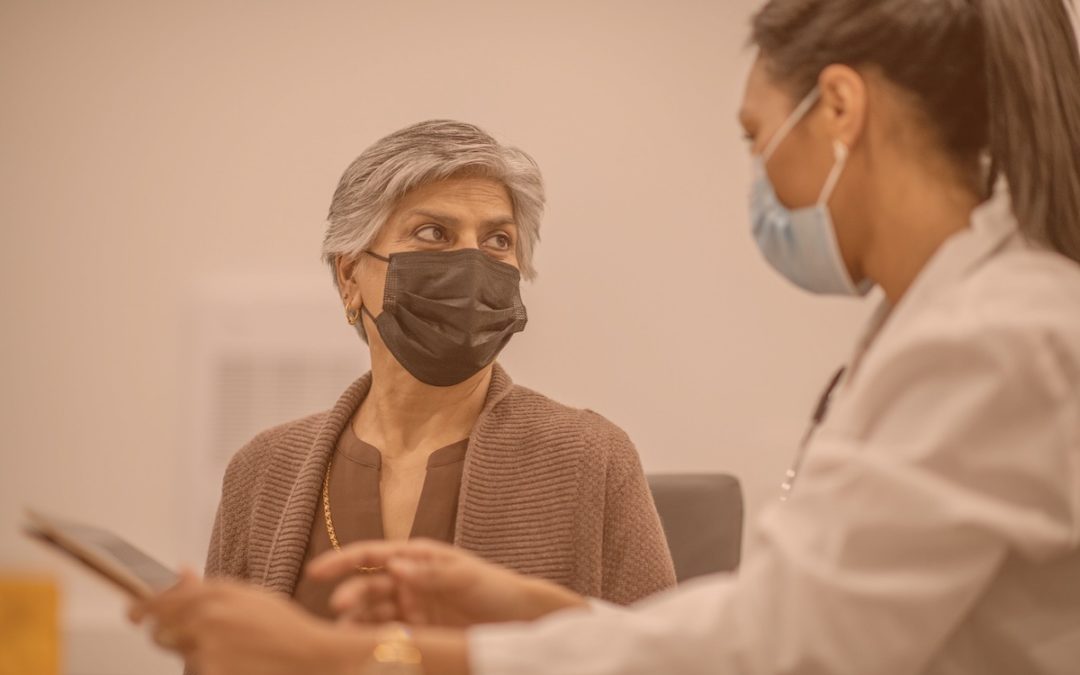Overcoming COVID-19 requires overcoming what gets in the in the way of people being vaccinated. Cognitive, psychological, ideological, political, and situational barriers create major obstacles to widespread COVID-19 vaccination.
Along with with these barriers are consistently low rates of Americans reporting they will get the vaccine. According to the Pew Research Center, Americans’ willingness to be vaccinated was 72% in May, 51% in September, and only 60% in November. All three rates are insufficient to inoculate the virus. But these numbers do not tell a complete story.
High-Risk COVID-19 Groups Reject Vaccine
An article published in the Journal of the American Medical Association (JAMA) Viewpoint points to certain groups being less likely to want the vaccine. In the fall of 2020, more Black Americans and people with fewer years of education said they don’t intend to get the COVID-19 vaccine compared to other racial/ethnic groups or those with more years of education.
Individuals hold different group memberships according to their race/ethnicity, gender, political party, religion, age, living situation, and more. Each group has both shared and unique barriers to engaging with and acting on health recommendations. Although Black Americans make up 13% of the U.S. population, they account for 1 in 5 deaths from COVID-19, but only 3% of COVID-19 vaccine trial participants. Historical research exploitation and current research underrepresentation fuels Black Americans’ distrust of the medical community. This distrust is a prominent barrier to getting vaccinated.
Vaccine Adoption Is Highly Individualized. Promotion Efforts Must Be Too.
Accelerating adoption of the COVID-19 vaccine among high-risk, vulnerable populations with the greatest vaccine hesitancy must start with a deep understanding of what gets in the way. This approach must include using behavioral science to cultivate trust, meet people where they are, and speak uniquely to each person within a population. A landscape of fear and uncertainty, precipitated by the pandemic, social unrest, and a heavily polarized social narrative, created new and amplified existing barriers to following public health recommendations.
Health systems are wrestling with how to overcome these and other barriers. They and Lirio know any successful vaccine adoption strategy requires unique communication for each person. It cannot be executed as one message for all.
Use Behavioral Science to Overcome Unique Barriers
The JAMA Viewpoint article proposes five solutions rooted in behavioral science to support receipt of the COVID-19 vaccine:
- Make the vaccine free and easily accessible
- Make proof of vaccination a requirement for access to settings dependent on crowd safety
- Use public endorsements from trusted leaders
- Provide priority access to people who sign up to get vaccinated before vaccines are widely available
- Transform individual vaccination decisions into public acts
All five solutions overcome critical evidence-based barriers identified in Lirio’s extensive review of research to date, some of which include:
- Concern the vaccine will cost too much
- Being too busy or forgetting to start or complete the two-shot series
- Distrusting science/healthcare
- Concern over the vaccine’s safety/side effects
- Myths and misinformation over how the vaccine works
- Deeply held ideological and political viewpoints promoting autonomy over collective good
These and other barriers are preventing people from starting and completing the COVID-19 vaccine. According to Dr. Ximena Alvira of Elsevier Health Solutions, “Our obligation is to reduce the barriers to providing effective vaccination…This involves providing medical and scientific information at the right place and time, in the right format, in the right language to health workers, policymakers, and patients.”
Lirio Precision Nudging™ Can Help Save Lives
Lirio is partnering with health systems to deliver this Vaccination Journey.
By encoding behavioral science solutions into an autonomous machine learning algorithm, Lirio creates hundreds of unique behavioral interventions to overcome barriers to being vaccinated. Using Lirio Precision Nudging™, each intervention overcomes both an individual’s barrier to engaging with a vaccine, as well as the more substantial barrier to getting the COVID-19 vaccine itself. Lirio’s program does this for both the initial and follow-up shot required to be completely vaccinated.
The devastating impact of COVID-19 has been widespread but not equal, shining a spotlight on shortcomings in health equity and representation. Lirio’s approach is particularly effective among communities hardest hit by COVID-19, including, but not limited to, members of racial and ethnic minority groups, low-income households, and individuals covered by Medicare and Medicaid. Unlike traditional and other digital solutions targeting broad sub-populations, Lirio Precision Nudging™ allows you to truly personalize both the solution and intervention at the individual level to achieve dramatically better outcomes than monolithic approaches.
We all approach health decisions with our own barriers and biases. It is part of being human. That does not mean every decision we make is the right one. It is our hope that by working together we can solve for dynamic differences and move people forward on their unique journey to better health, in a direction with the greatest benefit for all.
There is no more pressing health issue than the COVID-19 pandemic. We are keen, prepared, and ready to collaborate.
Follow Lirio on Facebook: Facebook.com/lirio.llc, LinkedIn: LinkedIn.com/company/lirio, and Twitter: @Lirio_LLC.
Other readers viewed:
Machine Learning Can Help Illuminate Bias in Health Care
How Health Systems Can Prioritize Employee Mental Well-being
Master Your Mental Wellness Support Strategy for Open Enrollment
